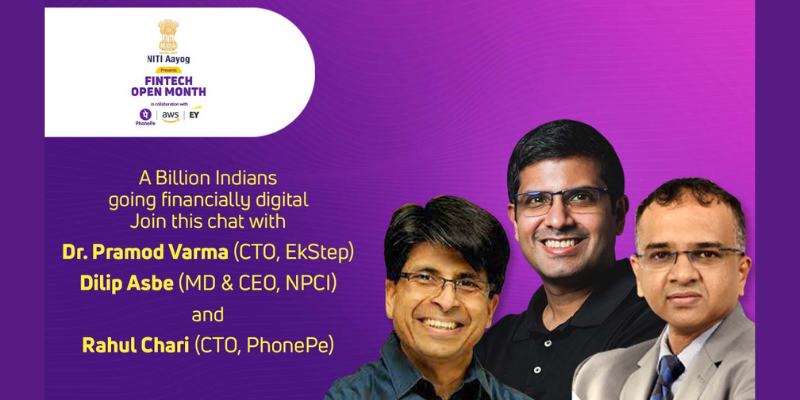Nine reasons why startups fail: Founders’ squabble, funding crunch, and more
While the Indian startup ecosystem has seen great success stories, there are many who have been waylaid. Of prime importance is the vision and an ability to call out one’s own decisions. Stay on top of the startup ladder as these investors and mentors list the mistakes entrepreneurs make.
It’s August 2019, and the Indian startup ecosystem has already seen 25 unicorns flourish. Startups in India have become mainstream today, and have in their innovative leaps, changed the way consumers eat, shop, and travel. However, while we are celebrating startups and their growth curve, it is important to remember that up to 25 to 30 percent of all startups fail.
A majority shut down within two years of starting up.
Kunal Shah, Founder of Cred, who is a second-time entrepreneur and was an investment advisor for Sequoia Capital and Y-Combinator says,
“We are much better than what we were seven to eight years ago, people are more real and more forthcoming. There was a time when entrepreneurship felt like an IIT exam, where people would write their notes and the other guy couldn’t copy. I have learnt one thing from China, they all have their notes open and they constantly help each other. They win and hunt in packs as entrepreneurs. We have a zero-sum mindset, if I share insights from my business and you yours, we are smarter. But a lot of times, we are thinking of this as fixed wealth and curriculum, wealth is not zero-sum.”

image credit: Aditya Ranade
While hindsight is 20:20, investors and mentors share the key mistakes startups make which can lead to failure.
- Lack of focus
Be it a product, features within a product or market positioning, a few investors and mentors believe that founders often start spreading themselves too thin. Alok Goyal, Managing Partner, Stellaris Venture, says,
“Many founders want to do X, Y, Z and A+B. This is for multiple different reasons. But in general, that lack of focus displays in many things that they do internally in the company.
A startup is best suited to solve a particular problem for a particular segment. This doesn’t mean that it will remain their focus forever, but founders need to sharply define what they want to build and the market they want to target. This in turn increases sharpness of one’s execution.”
Sanjay Anandaram, early stage investor and entrepreneur, believes that many tech founders end up falling in love with their product without checking if it is solving the customer’s need or if it is targeting the right market segment.
2. Founders’ discord
Those in the business of starting up, be it as investors or as mentors, believe close to 60 to 70 percent of startups fail because the founders aren’t aligned on a common ideal. Far from unusual, in reality, starting up is a tough and long journey.
“When good things happen everybody is happy, but when they don’t, everyone wants to blame the other, and this is true even with founders. Also as the journey progresses, different people have different aspirations. Also, in terms of functions and roles they want to play inside the company,” says Alok.
There are several friction points, and often teams are unable to stick together. Sanjay adds that founders’ egos and a fight about who will be CEO is a contentious subject that can derail a startup.
“Not having those conversations about who will be what? What happens when one leaves, etc needs to be addressed,” Sanjay adds.
3. Not hiring the right people
Are you hiring the right people at the right time? What kind of company culture are you building? These are some of the key questions’ founders need to address early on. Alok believes that when startups reach a transition stage, just the previous entrepreneurial zeal or passion cannot take you forward. This is where new ideas and talent brings in a new outlook.
What constitutes the right management team changes over time, and the ability of founders to think one step ahead of what the management or core team needs to look like is very important. And being able to hire for it is key.
“(Hiring wrong) People is one of the biggest mistakes in any organisation. A lot of companies have struggled, have either not got the hiring right, or have not got the firing right. Or not been able to nurture or marshal their resources appropriately,” says Vinod Murali, Managing Partner, Alteria Capital.
Alok adds that founders don’t realise the kind of team they need for the next level of scaling, and that is when they begin to plateau. “In anything else, course correction is something that can be done. If you get your people wrong, the damage is harder (to recover from),” says Vinod.
4. Knowing when to hustle and when not to
Finding the right strategy for a product or solution is the benchmark of a successful startup. “Sometimes founders can be too conservative or too aggressive - in general there is a thumb rule that if you have figured out the product market fit and the go-to market – then you should push on the pedal. Otherwise throwing money on marketing doesn’t make sense,” says Alok.
5. Lack of funding
To be the best leader can be a tough ask. Especially since it may not include being a good fund raiser.
Alok believes sometimes there are great founders with great thought processes who are phenomenal problem solvers. They have good fundamentals in how they build the company, whether it is about people, unit economics, they are able to take multiple aspects into consideration. But they aren’t the best fund raisers.
“And this is particularly true with consumer startups than others. Also it might be a case when there is a thinking of ‘winner takes all’ versus multiple winners in a market. Fund raising is a critical driver for success,” he says.
6. Lack of perseverance
Starting ups is a tough journey - a journey of contrasts at all times. On the one hand, you want to be smart about aborting a path that isn’t working out, yet on the other hand, when you abort too soon, you are denying yourself the opportunity to solve the problem and thus face challenges.
“The tough call is, ‘Are you aborting too soon or too late?’ I would focus more on the aborting too soon here, you will find founders who will just stick to the path,” says Sanjay.
7. Lack of learning agility
When we talk about the tech venture space, the environment you operate in changes all the time. The competitive landscape, technology, and markets are ever-changing. There are founders who feel they have solved a problem already, and are just trying to scale.
“The ability to stay close to the ground, the ability to ask the right questions, who to reach out to, to get the answers to the questions and do the right experiments and kill the things that don’t work or scale. While in the early stages, founders are enthusiastic or vigorous about it, as things begin to work, a wee bit of arrogance begins to seep in – ‘I know it already.’ The ability to discard what you did weans away, that is learning agility,” says Alok.
8. Wrong timing
Startups that went in too fast, or were slow in their uptake can see failure up close. “You need a strong tailwind. You may be a great sailor, but if there is no wind or if it is against you, you will only go so far. On the other hand, even if you are an average sailor and you have a strong tailwind you will be able to go far. Thus, timing or tailwind in the market actually matters the most,” says Alok.
9. Not raising capital at the right time
“One of the biggest challenges (faced by startups) is when markets are not fine, and (startups) have six to nine months of runway. They either push for growth in the hope of attracting capital or they start buckling down and protect their position - which makes it tougher to raise money. It’s the short term versus medium term – and the answer is tough. This is an area where a lot of founders are struggling to get the right answer, and they end burning too much capital or not showing growth,” says Vinod.















![[Funding alert] Bengaluru-based Tummoc raises $540K in seed round](https://images.yourstory.com/cs/2/b094ec506da611eab285b7ee8106293d/tummoc-1632137678984.png)